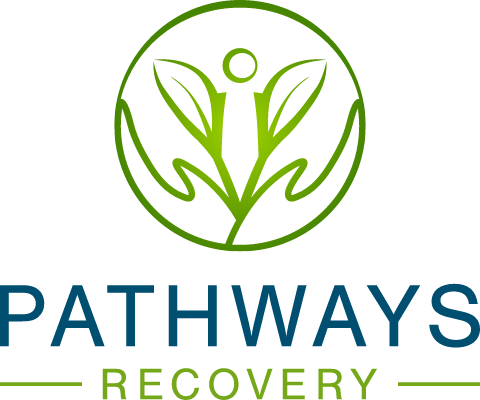The Safe Way To Stop Alcohol Use
Alcohol Detoxification Process
It’s just a few drinks after work to wind down. And maybe it is. But have you ever considered the possibility of an alcohol use disorder?
When a lot of alcohol is consumed daily, it can cause a dependency, which leads to severe medical issues if the normal alcohol consumption is suddenly stopped. While drinking one beer a day will not lead to dependency, drinking 8 a day might.
How Do I Know If I’ve Become Dependent On Alcohol?
It can sometimes be tricky to determine if you or a loved one has an addiction. It’s important to understand some of the common symptoms to better assess and understand the situation.
Firstly, every case is not the same. Alcohol use disorder can range from mild, moderate, or severe, depending on the level of dependency and the number of symptoms experienced by the individual.
Symptoms of alcohol use disorder can include:
- Difficulty limiting the amount of alcohol being consumed
- Inability to cut back on alcohol consumption despite wanting to
- Using alcohol in situations where it can be dangerous
- Failure in keeping responsibilities at school, home, or work due to alcohol use
- Strong urge or craving to drink
- Developing a tolerance to alcohol, so a higher quantity is needed to achieve a similar effect
- Experiencing withdrawal symptoms (shaking, nausea) when not drinking
- Cutting back on social activities and interests to spend more time drinking
- Rhinophyma (alcoholic nose)
Heavy drinking is defined by the National Institute on Alcohol Abuse and Alcoholism as five or more drinks in one session, or 14 a week, for men and four or more drinks in one session, or seven a week, for women.
One drink is defined as:
- 12 ounces of regular beer
- 8 to 9 ounces of malt liquor
- 5 ounces of unfortified wine
- 1.5 ounces of 80-proof hard liquor
Alcohol dependency can have significant consequences on the emotional and physical well-being of a person. Excessive alcohol consumption can reduce a person’s ability to make judgments and can lead to poor or risky decision making and behavior. Examples include car accidents, an increased likelihood of committing violent crimes, developing issues with other types of substance use, and an increased risk of attempted suicide.
Physical problems that can manifest from a serious alcohol dependency include:
- Liver disease
- Heart problems
- Stomach ulcers
- Involuntary eye movement
- Congenital disabilities or miscarriage
- Increased risk of cancer (mouth, throat, liver, esophagus, colon, breast)

What Are The Symptoms And Side Effects Of Stopping A Drinking Habit?
What Does Alcohol Withdrawal Look Like?
When an individual with alcohol dependency decides to cut off the habit or even reduce the amount of alcohol consumption, alcohol withdrawal can set in. Depending on the individual, alcohol withdrawal symptoms can start anywhere from hours to days later. An individual going through alcohol withdrawal may experience sweating, hand tremors, nausea, and restlessness, among other symptoms.
The effects of alcohol withdrawal can be harmful enough that they decrease one’s ability to function well at work and in social situations. Severe symptoms are more likely to occur in individuals who have more severe alcohol dependency. Individuals with less severe alcohol dependency may experience less intense symptoms.
How Do I Determine If I Need An Alcohol Detoxification Center?
To determine if you or a loved one needs the assistance of an alcohol detoxification center, you can begin by assessing the severity of the alcohol dependence. Consider the examples of withdrawal symptoms in the previous section.
The more symptoms that apply and the greater the severity of the symptoms indicate that an individual likely has a severe alcohol dependency and would require an alcohol detoxification center to go through alcohol detox safely. When an individual has a severe alcohol dependency, medically supervised detox is highly recommended. The more severe an alcohol dependency is, the higher likelihood there is that more complications arise during the detox process. Withdrawal symptoms will be more intense for an individual with a severe dependency than an individual with a mild dependency.
As dependency grows more severe, it also becomes increasingly more difficult to quit drinking by oneself. A medically supervised detox provides the appropriate level of support for individuals who require more assistance to make the journey towards sobriety.
It’s important to note that an alcohol detoxification center can also be beneficial for individuals who experience mild or moderate dependency and withdrawal symptoms. At a mild to moderate dependency stage, individuals can usually hold down a job without many issues and still participate regularly in interests and social activities. Some individuals may decide that alcohol detoxification centers are not for them because the alcohol habit doesn’t seem to affect their life negatively.
However, alcohol dependency is an issue that progresses. Over time, the issue continues to grow, even if it starts as a mild problem. It is better to get assistance before the dependency spirals into a severe problem. The sooner alcohol dependency is treated, the better the health of the individual will be in the long-term. Waiting until an alcohol dependency reaches a critical stage can open the gate to more severe health issues in the future and make recovery a longer process.
What Happens During The Detoxification Process In Terms Of Alcohol Withdrawal?
This is a question we get asked all the time here at Pathways Recovery, so we’ll answer by walking you through our own process. The process usually takes seven days. If a case is severe enough, the process may take longer. This is why, here at Pathways Recovery, we provide a home-like environment where our clients undergo medically supervised alcohol detox.
In this environment, each client is closely monitored. Detox symptoms are managed by medication that is prescribed by one of our licensed medical providers, and the response to the medication is supervised. This supervision is critical as a mismanaged detox process can be life-threatening for severe addictions.
While the detox process is ongoing, we aim to support our clients by ensuring that they receive proper rest, nutrition, and support from our excellent 24-hour support staff. It is our goal to make the detox process as safe and comfortable as possible.
Our detox center also offers educational resources to help individuals on the path towards long-term recovery. We provide educational groups about nutrition, healthy stress management, recovery, 12-step programming, and engaging yoga classes. To help our clients relax and reduce the intensity of some withdrawal symptoms, we also have a Jacuzzi spa available.

What Comes Next After Alcohol Detox Treatment?
After clients complete the detox process, we have several different treatment programs in Sacramento that they are welcome to enter.
Men in the detox process are eligible to enter our men’s alcohol addiction treatment center in Sacramento, which is a residential-based program that continues treatment. Men and women also have the option to enter into our intensive outpatient rehab program.
At Pathways Recovery in Sacramento, we are ready to assist people with breaking free of alcohol dependency. Alcohol detoxification is one of the first steps towards taking back your sobriety. It can be difficult to break the habit of alcohol consumption once it’s become habitual. Our program will allow you to move beyond your dependency and give you the educational tools and resources necessary to make your recovery long-term. Call us at (916) 735-8377 to get started.
Withdrawal Symptoms FAQs
What’s the best way to stop drinking?
The decision to stop drinking can be difficult for many individuals. If an individual already has an established alcohol dependency, deciding to quit and sticking to that decision is a challenge. Individuals with more mild alcohol dependency may be able to quit by forming good habits, learning about alcohol dependency, and seeking help from an individual who has quit or a medical provider.
Alcohol detoxification centers can also be very beneficial in helping an individual move beyond a drinking habit.
What happens if you drink alcohol everyday?
Consuming alcohol daily can have negative effects on organs and bodily functions. Alcohol can irritate the gastrointestinal tract, causing swelling and redness. It can also affect the heart and cause high blood pressure, even leading to sudden cardiac deaths in cases of severe alcohol use. Over time, alcohol use can wear down the kidneys and cause a decrease in function.
Besides the many physical issues that daily alcohol consumption can cause, mental health issues like anxiety and depression can also co-occur with alcohol dependency.
How many drinks a day is considered alcoholism?
The National Institute on Alcohol Abuse and Alcoholism defines heavy drinking as five or more drinks in one session, or 14 a week, for men and four or more drinks in one session, or seven a week, for women.

